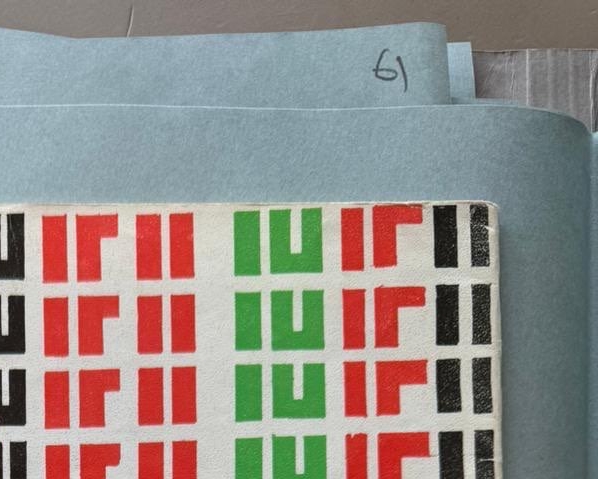Infrastructural resistance in the archive
A conversation with Miriyam Aouragh, Karl Moubarak and Omar Jabary Salamanca
8 October 2024, 19:30-21:30
Pianofabriek, Rue du Fort 35, 1060 Brussels

Infrastructural resistance is the abolitionist work of breaking down oppressive infrastructures and at the same time imagining, organising and/or building up new structures and institutions. But what does this look like? How are infra-struggles presented visually as part of historical legacies? What visual lexicon and quotidian aesthetics could transform affective relations to infrastructures?
In this conversation, Miriyam, Karl and Omar will speak about the deep dive they are taking into the archives of IISH, The International Institute of Social History (Amsterdam), looking for visual evidence of creative strategies, community organising, publishing, and concepts for and of infra-resistance. The archives contain rich materials, including posters, flyers, stickers, photos, maps, diagrams, architectural plans, performances, banners, and objects. Based on the conviction that visual practices can energize the building of everyday infrastructures for communication, caring, learning, sharing resources and creative life otherwise; their research has focused on both the recovery of images that help situate, politically sharpen, historicise and create imaginative strategies for current resistance against digital depletion, and on the violence waged by computational infrastructures collaborating with corporate and state actors on genocidal technologies.
Miriyam Aouragh is a digital anthropologist and researches the intersection between politics and digital infrastructures especially in the WANA region. She is a Dutch-Moroccan scholar and grassroots organiser and engages with racism/anti-racism and cyberwar topics. She collaborates with international networks of critical thinkers across a number of projects. Miriyam wrote among others Palestine Online (2011); (with Hamza Hamouchene); The Arab Spring a decade on: Revolution,Counter-Revolution and the transformation of a region (2022); and with Paula Chakravartty Infrastructures of Empire (2025).
Karl Moubarak is a designer and tool-builder whose practice is rooted in the digital sphere and focuses on the research, development, and social activation of experimental interfaces, infrastructures, and on and offline sites for exchange. Karl collaborates with artists, collectives, researchers, and cultural organisations on projects that pay critical attention to the processes, tools, and mechanisms that co-constitute them. Karl enjoys working with free, libre, and open-source software and hardware with a particular interest in accessibility, sustainability, and experimental methods of liveness and dissemination.
Omar Jabary Salamanca is a writer, teacher and organizer based in Brussels. His work is concerned with the contested governance of space, matter, bodies and environments in a range of historical and geographical contexts, particularly in the Middle East. He is also interested on anticolonial histories and circulations of visual and material culture. Combining theory with social histories and archival practice, his work and practice crosses the fields of critical geography, political ecology, science and technology studies and Middle East studies.
This conversation intitated by The Institute for Technology in the Public Interest (TITiPI) is part of The Social Life of XG, a project which brings together researchers in anthropology, political science, queer technoscience, sociology and cultural studies to explore the imaginaries that guide the development, production and maintenance of digital infrastructures, and how they shape and reconfigure dominant notions of politics and community.